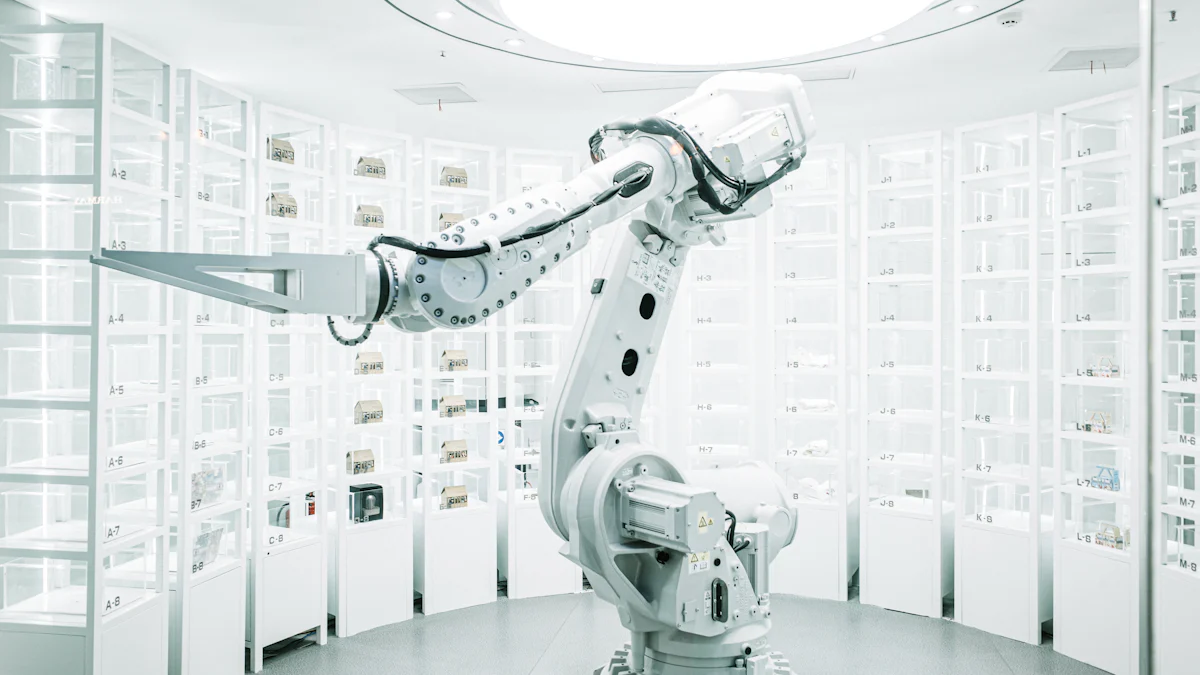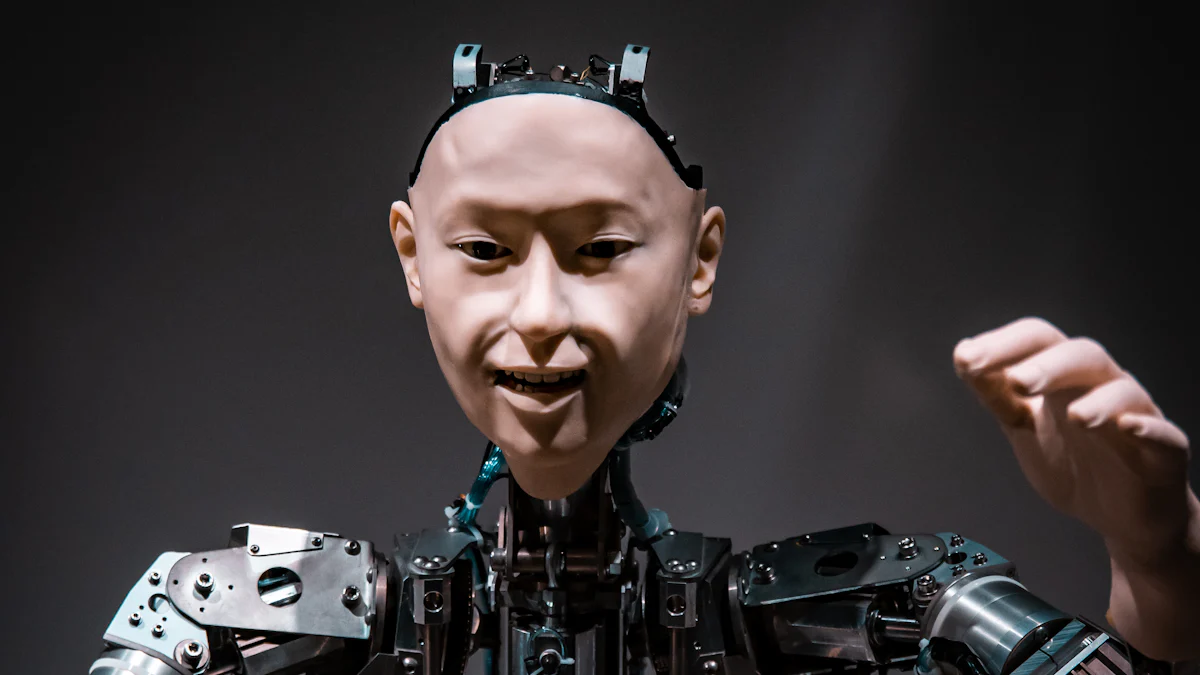How Will Generative AI Evolve in the Next Decade?

Generative AI refers to machine-learning models that create new content resembling the data they were trained on. These models can produce human-like creative writing, translate languages, generate functional computer code, or create realistic images from text prompts. Understanding its future evolution is crucial as it holds the potential to revolutionize various industries. Currently, Generative AI systems like ChatGPT can generate images, text, and other products in response to queries and prompts, showcasing their powerful capabilities in research and scholarship.
Current Applications of Generative AI
Generative AI has made significant strides in various sectors, showcasing its versatility and potential. This section explores its current applications across different industries.
Creative Industries
Art and Design
Generative AI has revolutionized the art and design world. Artists use AI to create unique pieces that blend human creativity with machine precision. These AI models generate new designs by learning from vast datasets of existing artworks. This technology allows artists to explore new styles and techniques, pushing the boundaries of traditional art forms.
Music and Entertainment
In music and entertainment, Generative AI plays a pivotal role. Musicians and producers utilize AI to compose original music, offering fresh sounds and compositions. AI tools analyze patterns in existing music to create new melodies and harmonies. This innovation not only aids in music creation but also enhances soundtracks for films and video games, providing immersive experiences for audiences.
Business and Marketing
Content Creation
Businesses leverage Generative AI for content creation. AI tools generate articles, social media posts, and marketing materials, saving time and resources. These tools analyze trends and audience preferences to produce engaging content that resonates with target demographics. As a result, companies can maintain a consistent online presence and effectively communicate with their audience.
Customer Engagement
Generative AI enhances customer engagement by personalizing interactions. AI-driven chatbots and virtual assistants provide tailored responses to customer inquiries, improving user experience. These systems learn from previous interactions to offer more accurate and helpful information, fostering stronger customer relationships and increasing satisfaction.
Healthcare and Science
Drug Discovery
In healthcare, Generative AI accelerates drug discovery. Researchers use AI to simulate chemical reactions and predict the effectiveness of new compounds. This approach reduces the time and cost associated with traditional drug development processes. By identifying promising candidates faster, AI contributes to the advancement of medical treatments and therapies.
Medical Imaging
Generative AI also transforms medical imaging. AI algorithms enhance image quality and assist in diagnosing diseases. These tools analyze medical scans to detect anomalies, aiding radiologists in making accurate assessments. This technology improves diagnostic accuracy and speeds up the process, ultimately benefiting patient care.
MIT Generative AI Week highlighted the innovative applications of Generative AI across these fields, emphasizing the importance of collaboration and regulation to harness its full potential.
Generative AI continues to evolve, offering transformative solutions across diverse industries. Its current applications demonstrate its ability to enhance creativity, efficiency, and accuracy, paving the way for future advancements.
Emerging Trends in Generative AI

Generative AI continues to evolve, driven by technological advancements and integration with other technologies. These trends promise to enhance its capabilities and broaden its applications.
Technological Advancements
Improved Algorithms
Generative AI models are becoming more sophisticated due to improved algorithms. Researchers focus on developing models that surpass human capabilities. These advancements enable AI to generate content that closely resembles the data it was trained on. As a result, AI can produce more accurate and creative outputs. The ongoing research aims to integrate perceptual systems beyond language and images, expanding the potential of Generative AI.
Enhanced Computing Power
Enhanced computing power plays a crucial role in the evolution of Generative AI. With faster processors and more efficient hardware, AI models can process larger datasets and perform complex calculations quickly. This increase in computing power allows for the development of more advanced AI systems. These systems can handle intricate tasks, such as real-time data analysis and dynamic content generation, improving their usability and effectiveness.
Integration with Other Technologies
AI and IoT
The integration of Generative AI with the Internet of Things (IoT) opens new possibilities. AI can analyze data from IoT devices to create personalized experiences. For instance, smart homes can use AI to adjust lighting and temperature based on user preferences. This integration enhances the functionality of IoT devices, making them more responsive and intuitive.
AI and Blockchain
Combining Generative AI with blockchain technology offers unique advantages. Blockchain provides a secure and transparent platform for data exchange. When integrated with AI, it ensures the integrity and privacy of generated content. This combination is particularly beneficial in sectors like finance and healthcare, where data security is paramount. By leveraging blockchain, Generative AI can operate more securely and efficiently.
Generative AI Usage Guidance for the Research Community emphasizes the importance of responsible production and deployment of AI tools. As these technologies evolve, researchers must disclose their use of AI in research activities to maintain transparency and trust.
Generative AI's future lies in its ability to adapt and integrate with emerging technologies. These trends highlight the potential for AI to transform industries and improve everyday life. As Generative AI continues to advance, it will undoubtedly play a pivotal role in shaping the future.
Future Potential and Predictions
Generative AI stands on the brink of transforming numerous sectors, offering unprecedented opportunities for innovation and efficiency. As it evolves, its potential to reshape industries becomes increasingly apparent.
Expansion into New Sectors
Education
Generative AI promises to revolutionize education by personalizing learning experiences. AI models can analyze student data to tailor educational content, ensuring that each learner receives instruction suited to their needs. This technology can create interactive simulations and virtual environments, enhancing engagement and understanding. By integrating perceptual systems beyond language and images, Generative AI can offer multisensory learning experiences, making education more accessible and effective.
Finance
In the finance sector, Generative AI can enhance decision-making processes and risk management. AI models can analyze vast datasets to identify trends and predict market movements, providing valuable insights for investors and financial institutions. This capability allows for more informed decisions, reducing risks and maximizing returns. Additionally, AI can automate routine tasks, such as fraud detection and customer service, improving efficiency and accuracy in financial operations.
Long-term Impacts on Society
Workforce Changes
Generative AI will significantly impact the workforce, altering job roles and responsibilities. As AI systems automate repetitive tasks, workers will need to adapt by acquiring new skills and focusing on tasks that require human creativity and emotional intelligence. This shift may lead to the creation of new job opportunities in AI development and maintenance. However, it also poses challenges, as some workers may face displacement. Policymakers and educators must collaborate to ensure a smooth transition, providing training and support for affected individuals.
Economic Growth
The integration of Generative AI into various industries holds the potential to drive substantial economic growth. By increasing productivity and efficiency, AI can contribute to higher output and reduced costs. This technology can help solve pressing global issues, such as climate change and healthcare, by optimizing resource allocation and improving decision-making processes. As Generative AI continues to advance, it will likely add trillions of dollars in value to the global economy, marking the beginning of a new era of innovation and prosperity.
Engaging with policymakers and the public is crucial to ensure the responsible production and deployment of Generative AI tools. By fostering collaboration and transparency, society can harness the full potential of this transformative technology while addressing ethical concerns and challenges.
Generative AI's future potential is vast, with the ability to reshape industries and improve lives. As it expands into new sectors and impacts society, its role in driving innovation and economic growth will become increasingly significant.
Ethical Considerations and Challenges
Generative AI presents numerous ethical challenges that require careful consideration. As this technology continues to evolve, addressing these concerns becomes crucial to ensure its responsible use and deployment.
Data Privacy Concerns
Data privacy stands as a significant concern in the realm of Generative AI. The technology often relies on vast amounts of data to function effectively, raising questions about how this data is collected, stored, and used.
User Consent
User consent is a fundamental aspect of data privacy. Individuals must have a clear understanding of how their data will be used by Generative AI systems. Companies and developers should prioritize transparency, ensuring users are fully informed before collecting their data. This approach not only respects user autonomy but also builds trust between users and AI developers.
Data Security
Data security is another critical issue. Generative AI systems must implement robust security measures to protect sensitive information from unauthorized access or breaches. Developers should employ encryption and other advanced security protocols to safeguard data. By doing so, they can prevent potential misuse and ensure that user information remains confidential and secure.
Bias and Fairness
Generative AI models can inadvertently perpetuate bias, leading to unfair outcomes. Addressing bias and ensuring fairness in AI systems is essential to promote equality and justice.
Algorithmic Bias
Algorithmic bias occurs when AI models produce skewed results due to biased training data. Developers must carefully select and curate datasets to minimize bias. Regular audits and evaluations of AI systems can help identify and rectify any biases present. By actively working to reduce algorithmic bias, developers can create more equitable AI solutions.
Ensuring Fairness
Ensuring fairness involves creating AI systems that treat all users equally, regardless of their background or characteristics. Developers should implement fairness checks and balances throughout the AI development process. Engaging with diverse stakeholders can provide valuable insights and perspectives, helping to create more inclusive AI systems.
Generative AI usage guidance emphasizes the importance of staying informed about AI developments and integrating responsible AI practices. Engaging with policymakers and the public ensures the responsible development and deployment of Generative AI.
Generative AI holds immense potential, but it also raises ethical considerations that must be addressed. By focusing on data privacy and fairness, developers can create AI systems that benefit society while minimizing harm. As Generative AI continues to advance, ongoing dialogue and collaboration will be essential to navigate these challenges effectively.
Generative AI stands poised to revolutionize industries, offering transformative solutions across creative, business, and healthcare sectors. As it evolves, its integration with emerging technologies like IoT and blockchain will broaden its applications. The future holds promising scenarios where AI enhances education, finance, and societal growth. Stakeholders must engage actively with this evolving landscape. Collaboration among academics, policymakers, and industry leaders is essential for the safe and effective use of generative AI. By fostering transparency and responsibility, society can harness AI's full potential while addressing ethical challenges.
See Also
Contrasting Generative AI with Traditional AI
The Future of Creativity and Innovation: Generative AI
